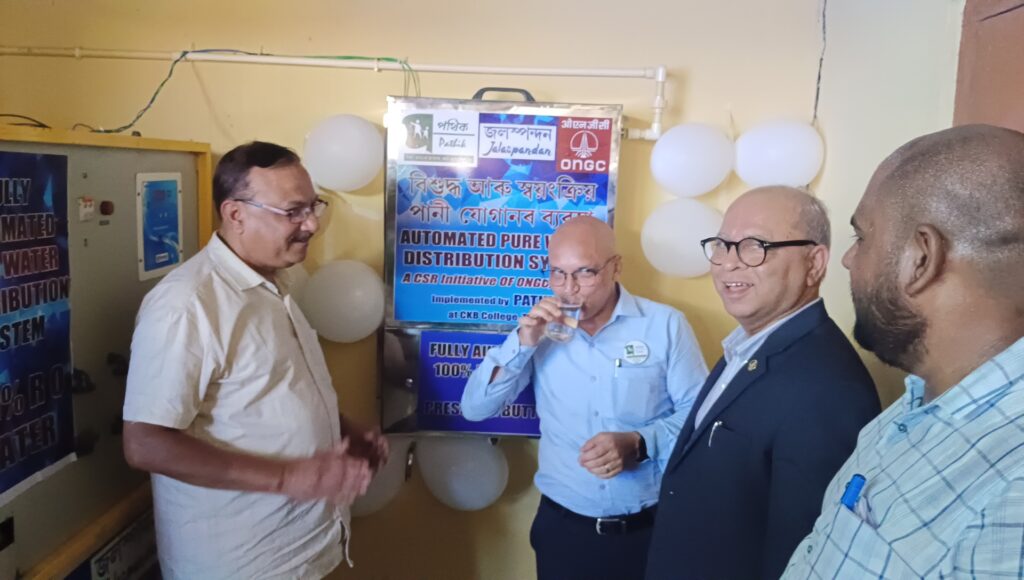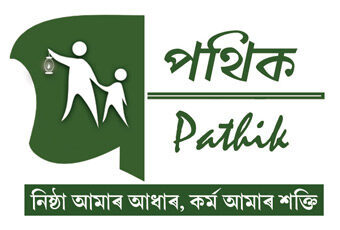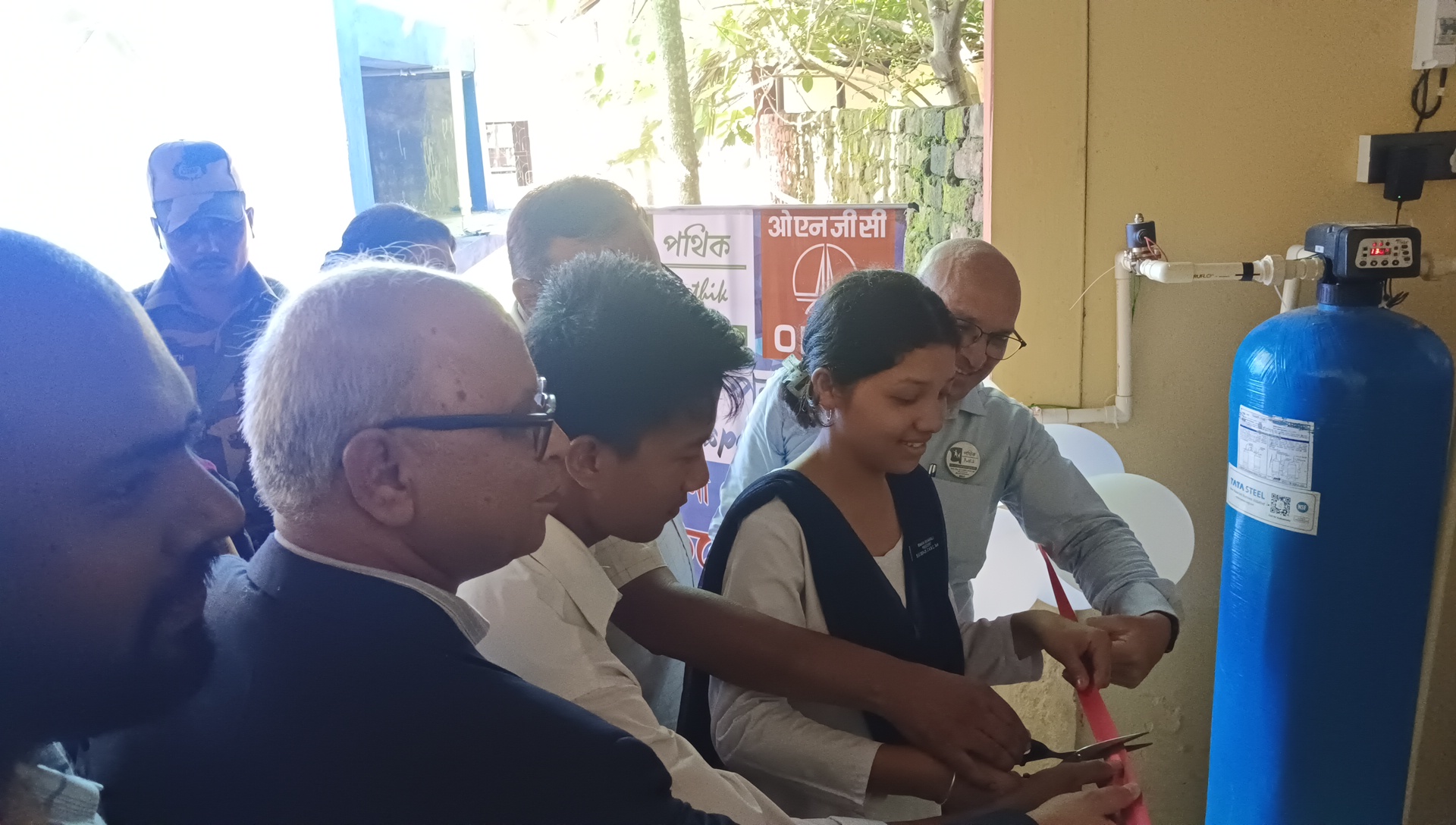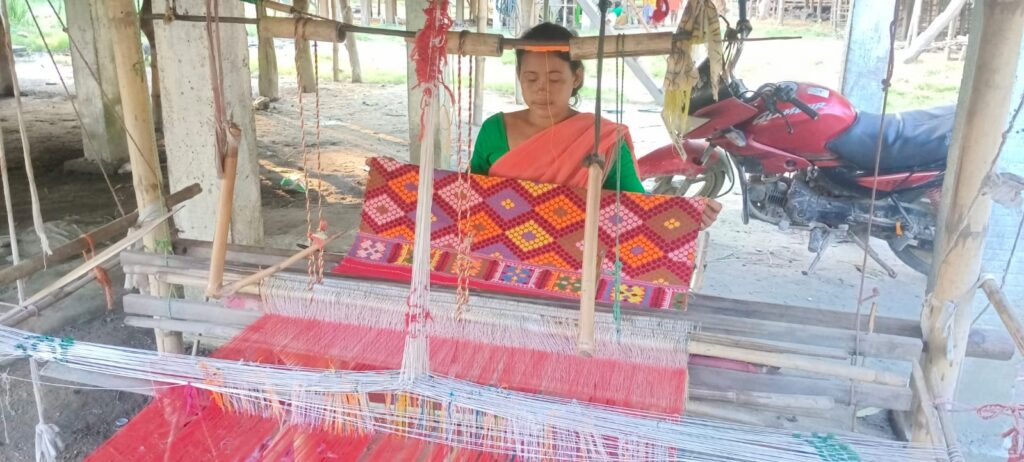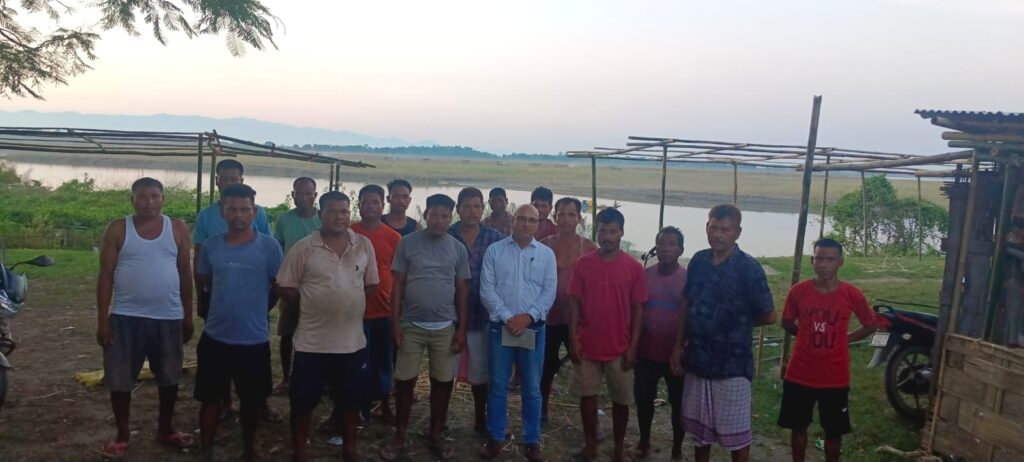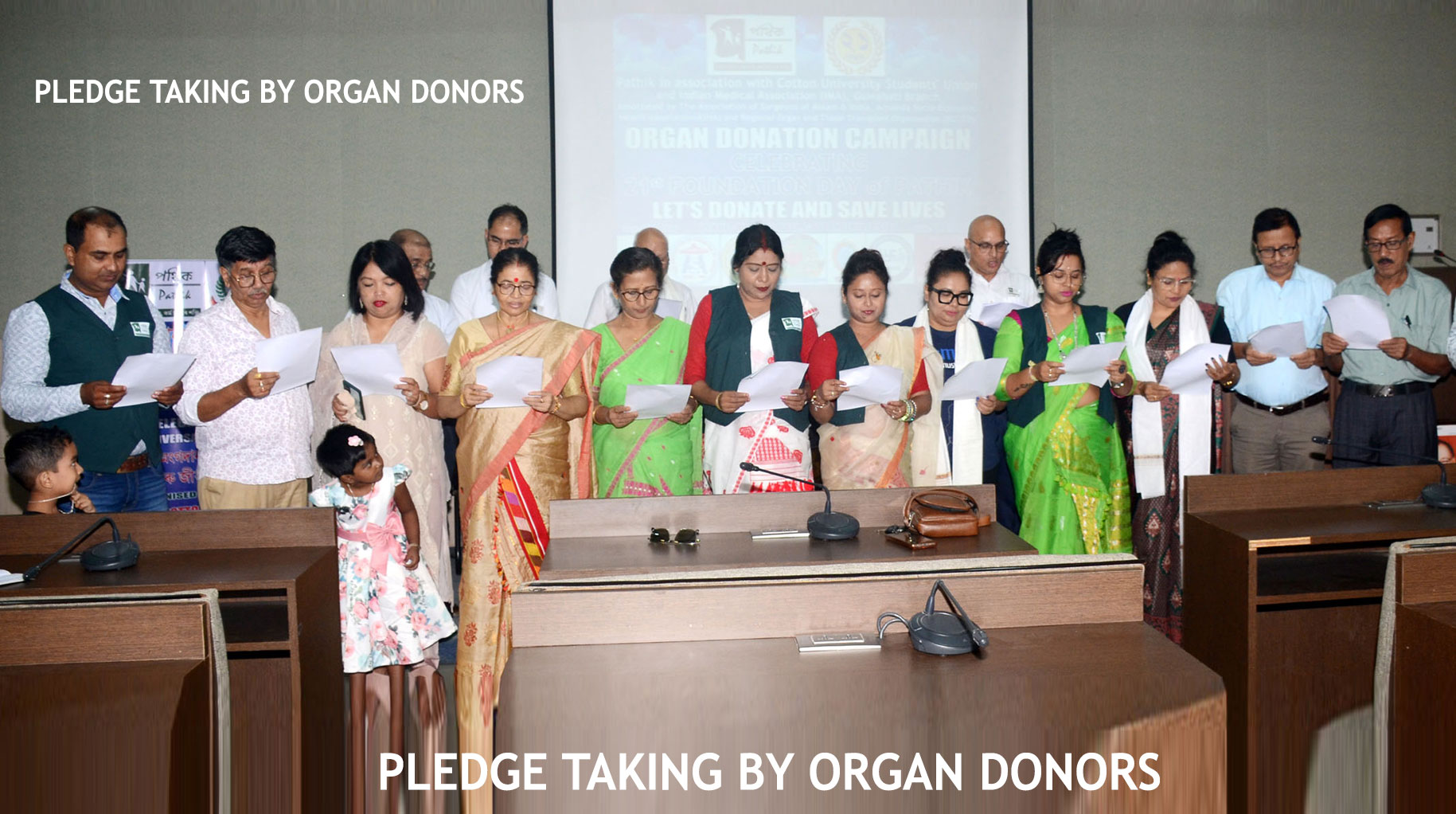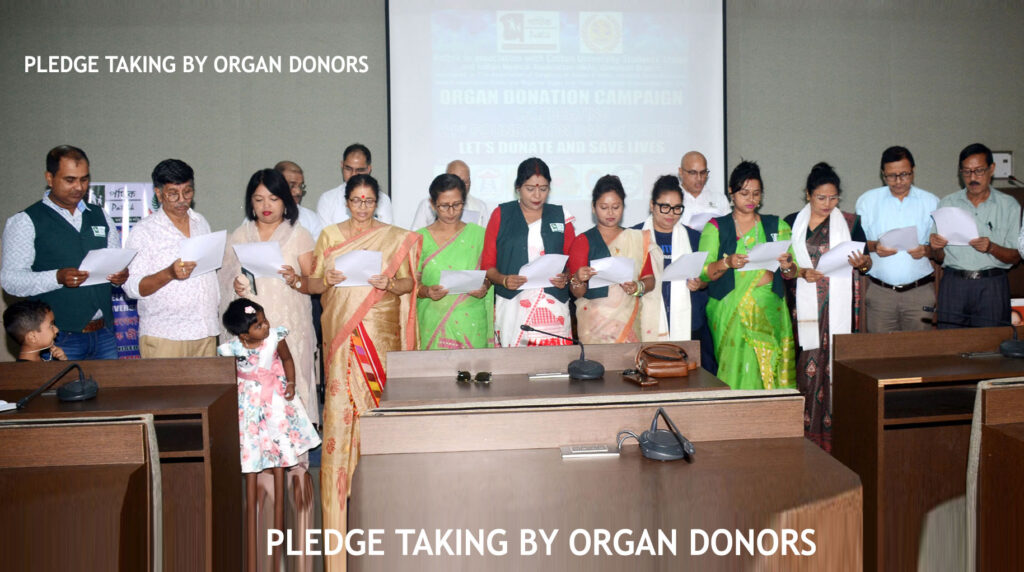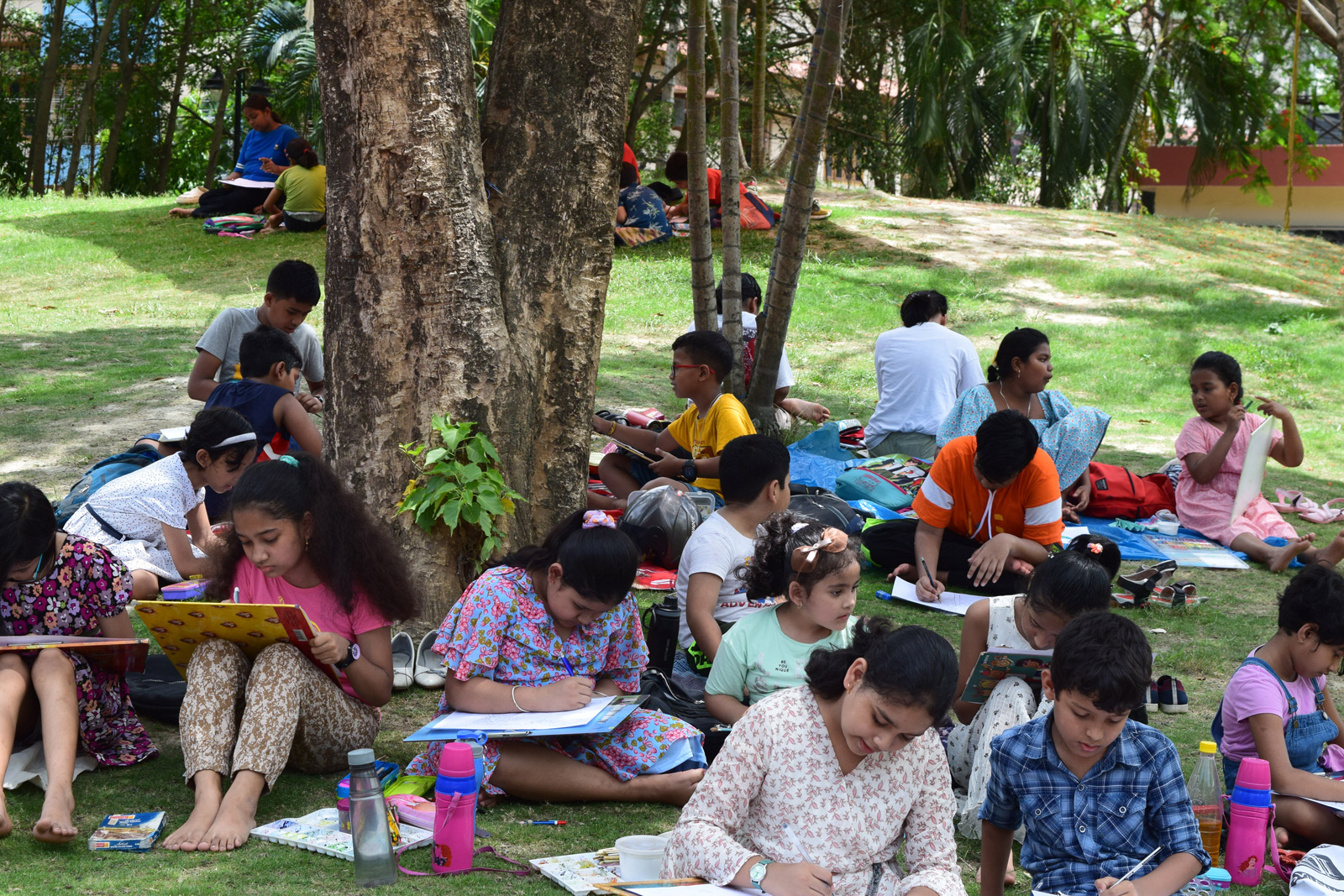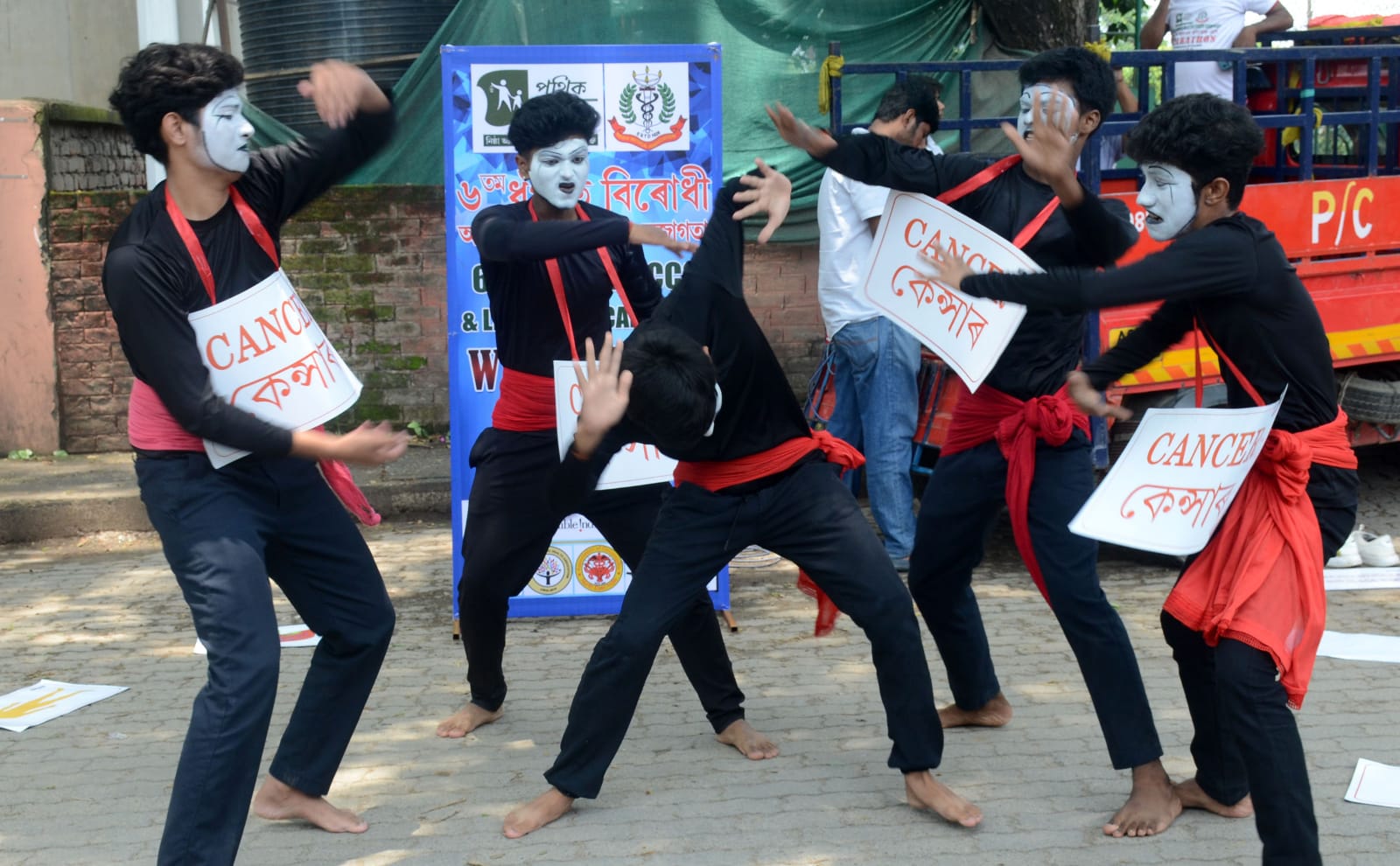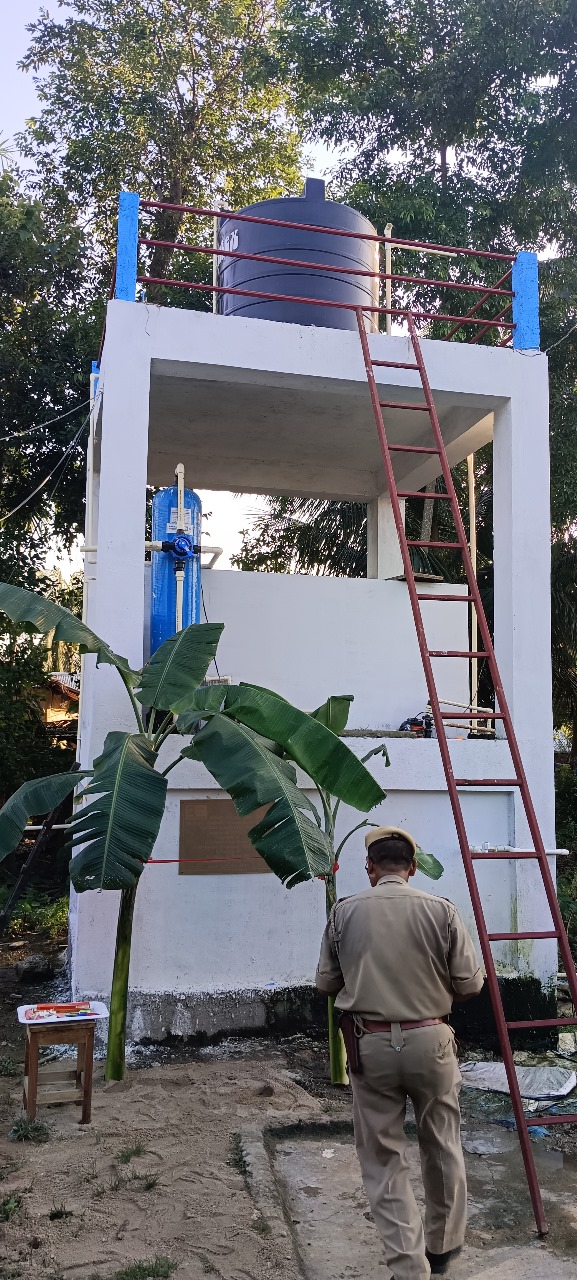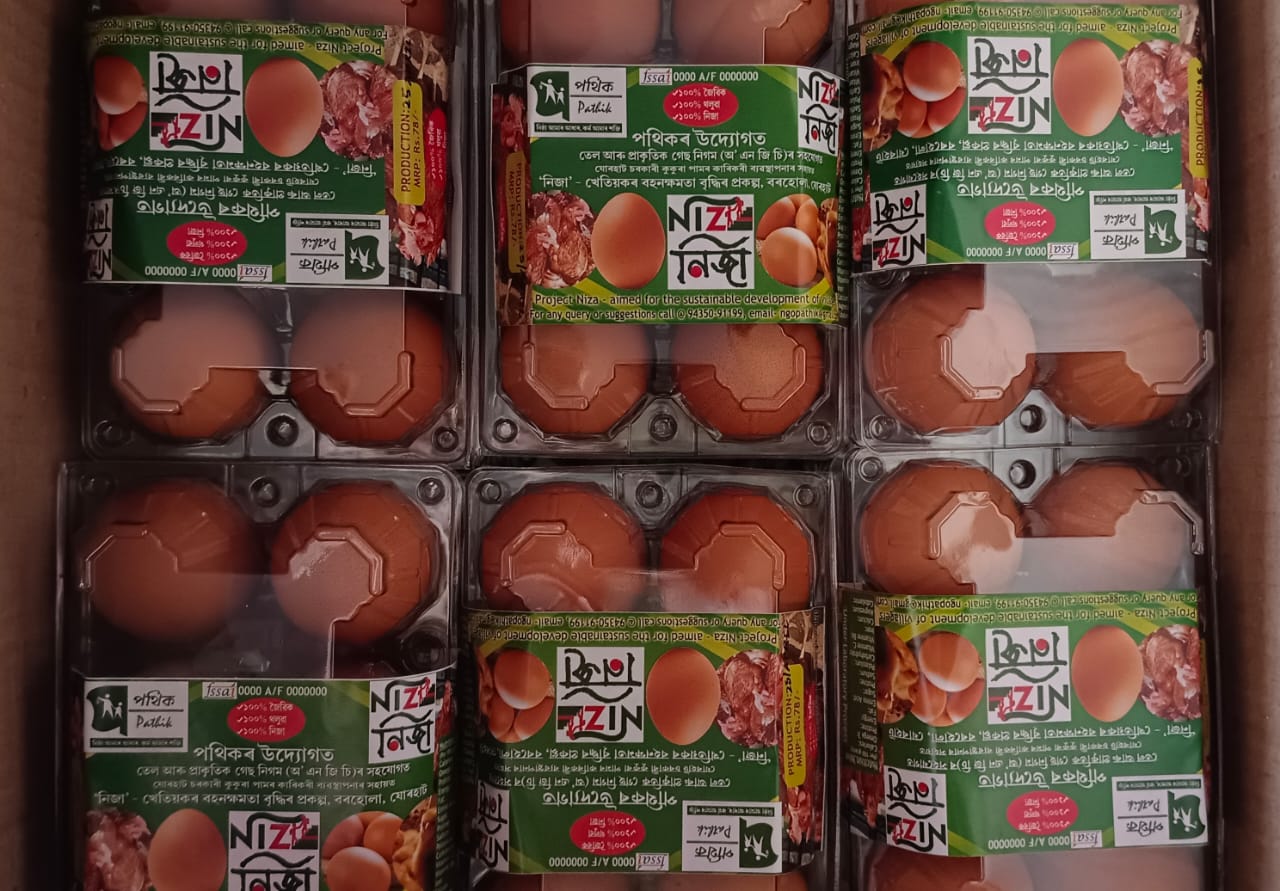-
0 Comments
‘Pathik’ – through project Jalaspandan
inaugurated Clean Pure and Automated Water Supply Systems at CKB College, Teopk Jorhat district
with Financial Assistance of Oil and Natural Gas Corporation (ONGC), Jorhat.
Under the leading of ‘Pathik’, a widely known Non-Governmental Organisation of Assam, inaugurated the drinking water project JALASPADAN with the financial assistance of Oil and Natural Gas Corporation Jorhat at Chandra Kamal Bezbaruah College, Teok of Jorhat District using the latest Hi-Tech Automated Water Purification and Dispensing System. This project will solve the existing drinking water problem of the Students and College Teaching Staff suffering for a long time. The System is a 6 stage water purification system where No manual work is involved. Here, Pathik is using the deep water from 290 feet under ground by using submersible pump Pump to be first stage normal Send filter storing 10000 liters to be transmitted to 5000 liter over head storage tank with another centrifugal pump. Then the water is been treated by IRON removal Plant which is again treated by a Reverse Osmosis System for all treatment. Then the pure water is been sent to a automated dispensing system storing 100 liters per second. This Automated water distribution system will solve the problem of un necessary water loss and un necessary electricity loss.
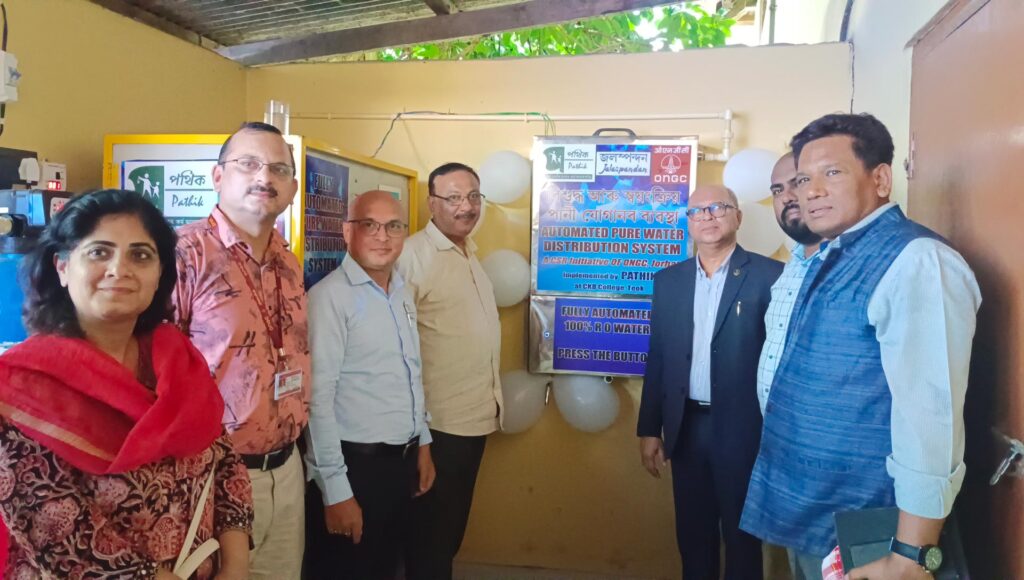
On 13th September the Automated Water Dispensing System was Inaugurated by ED-Asset Manager ONGC Jorhat Mr. Amit Kumar in presence of Circle Officer Teok Mr. bedanta baruah, Support Manager Dibyajyoti Borah, Head HR/ER Prity Sureka, CSR in charge Satish More, CKB College Principal Dr. B K Pachani, Teachers and Students and the members of PATHIK.
Earlier this month Pathik installed 11 police stations, outposts and reserves in Jorhat district covering 2023-24 sessional period as a CSR initiative of ONGC, Jorhat. Starting with Pulibor Police Station then Nimati Out post and Lahdaigarh out post on 5th September continued on 6th September along with Titabar Police Station, SDPO Titabar, Bekazan, Morioni, ended on September 7 via Bamunpukhuri OP, Selenghat OP, Deberapara OP and Garmur OP under SP, Jorhat. The program was mentored by Director of Pathik Victor Rajkumar, senior member Mridul Goswami and Project Coordinator Sanjeev Saikia where Superintendent of Police, Jorhat Mr. Shwetank Mishra, IPS and ED-Asset Manager ONGC Jorhat Mr. Amit Kumar, Additional Superintendent of Police Luna Sonowal, SDPO-Titabor Mrs. Kakoli Patgiri, Deputy Superintendent of Police Prafulla Das, Head HR/ER Prity Sureka, Support Manager Dibyajyoti Borah, CSR in charge Satish More, OCs and ICs and other ONGC senior Officials FR-CSR Bharat Kamle, GM(Civil) R C Das, Security in charge R K Pundir, Manager Sucurity Ramesh Bitra were among the inaugurators of the 11 water projects covered during the 3 days program in presence of local VDPs, women’s forums, Gauburas and general public.
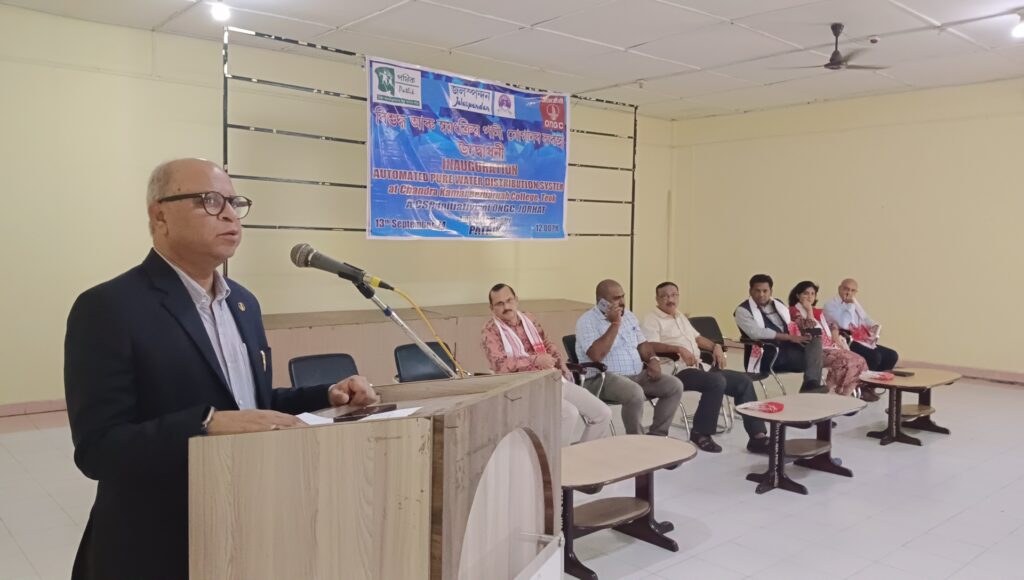
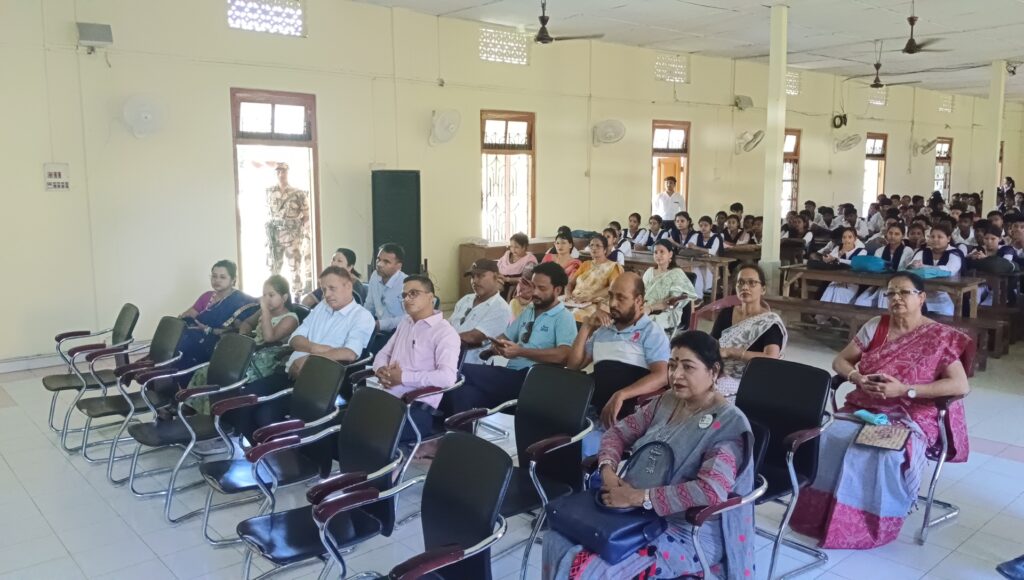
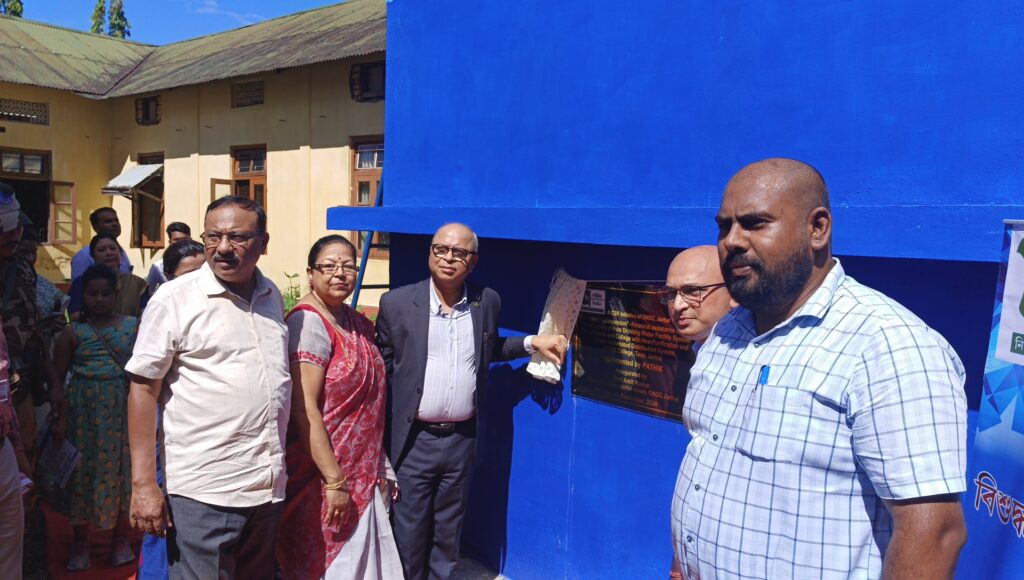
Last year 2022-2023, Pathik has arranged for water supply to the people of about 194 villages covering 11 police stations, police stations, police outposts, police cantonments with the financial assistance of ONGC, Jorhat accordingly. In the second phase of this project, Pathik will connect the project to solve the problem of toxic arsenic and fluorine found in the water where ONGC, Jorhat had assured all the required Support.
